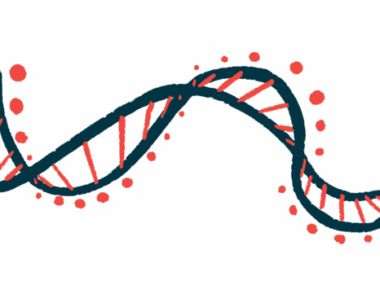Case Report: Pregnancy Triggers aHUS in Woman, 18, Causing Kidney Failure
Written by |

Pregnancy triggered atypical hemolytic uremic syndrome (aHUS) in a genetically predisposed 18-year-old woman, causing rapid kidney failure two years after her child’s birth, researchers in the U.S. have reported.
The woman’s kidney failure was initially thought to be due to high blood pressure. However, after genetic testing, she was diagnosed with aHUS — and was being considered for a possible kidney transplant.
“This case highlights a unique case of a devastating systemic disease triggered by a normal physiological phenomenon of pregnancy leading to advanced morbidity,” the scientists wrote, adding, “It reiterates the importance of early diagnosis and how it is imperative to proceed to treatment promptly to prevent chronic renal failure.”
The report, “Pregnancy-associated atypical hemolytic uremic syndrome and life-long kidney failure,” was published in the journal Cureus.
aHUS is a rare disease characterized by red blood cell destruction, low platelet counts, and kidney failure. It is typically associated with mutations in the genes that regulate the complement cascade — a part of the immune system that helps defend the body against invading microbes. However, mutations alone are not enough to cause aHUS. Usually, environmental triggers, such as infections or pregnancy, are necessary to induce the onset of the disease.
Researchers from the Woodhull Medical Center, in Brooklyn, New York, have now reported the case of a young woman whose aHUS appeared to have been triggered by pregnancy.
The woman was admitted to the emergency department two years post-pregnancy, complaining of nose bleeds that had been progressively worsening over the previous year. She also had headaches, irregular menstrual cycles, pain in her back below her rib cage, and high blood pressure.
Her medical history showed she had experienced pre-eclampsia during pregnancy — a complication characterized by high blood pressure and the presence of proteins in the urine. That had led to her birthing a premature baby via C-section.
Lab tests now showed she had low hemoglobin levels, normal platelet counts, significantly reduced glomerular filtration rate, and high protein levels in the urine.
Doctors initially suspected she had kidney failure due to high blood pressure, and she was hospitalized.
Finding a diagnosis
After treating the blood pressure, physicians brought in a kidney specialist to assess the woman. A kidney biopsy revealed extensive kidney damage with clots in small blood vessels, prompting clinicians to start her on dialysis — a treatment that filters waste products and water from the blood when the kidneys are no longer able to perform their function.
In the meantime, the team performed further lab tests to determine if the patient had an autoimmune condition. However, all tests came back negative. Her complement proteins were measured, and C3 was found to be mildly decreased at 66 mg/dL (normal range: 81–157 mg/dL); C4 was normal.
She had high levels of red blood cell fragments (schistocytes) and immature red blood cells, both signs of red blood cell destruction, or hemolysis. Her ADAMTS13 activity levels were normal, and her stool culture was negative for Shiga toxin. ADAMTS13 is a protein that promotes blood clotting; a lack of it can cause thrombotic thrombocytopenic purpura, a condition that may cause symptoms similar to those of aHUS. A positive Shiga toxin may indicate the presence of typical HUS.
Genetic testing showed the patient had a mutation in the CFHR1 gene, which has been implicated in aHUS.
Based on lab tests, her medical history, kidney biopsy results, and genetic tests, doctors diagnosed the woman with aHUS. She was treated with Soliris (eculizumab) injections once every two weeks while waiting for workup for a possible kidney transplant.
“Further reporting of cases is warranted to monitor the incidence and improve prognostic outcomes in patients with aHUS,” the researchers wrote.






